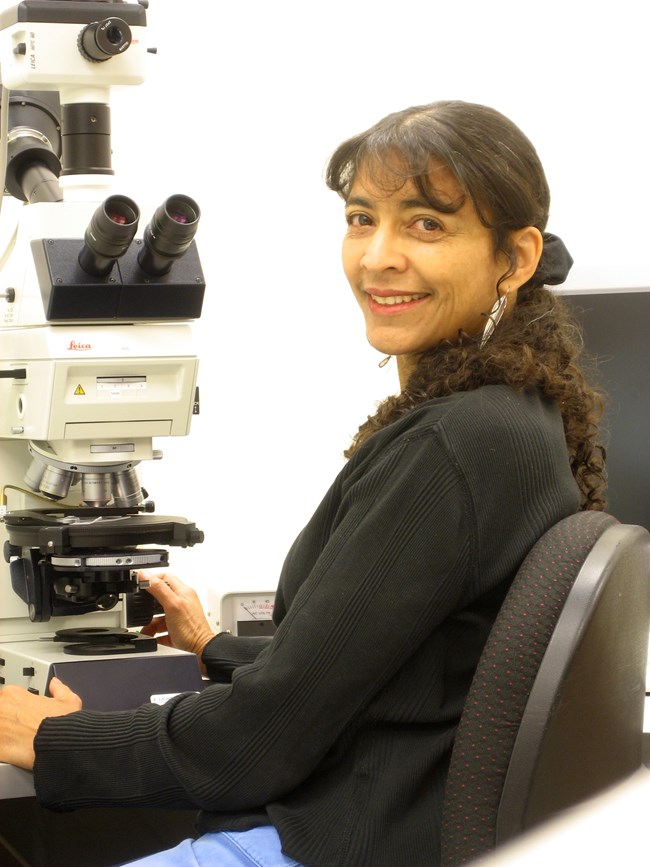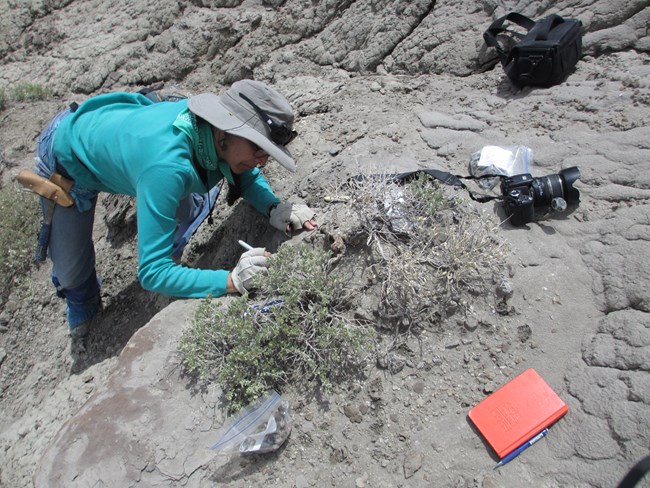Part of a series of articles titled Meet A Paleontologist.
Article
Karen Chin, University of Colorado Boulder

Associate Professor and Curator of Paleontology, University of Colorado Boulder, Colorado
NFD Kid's Page Interview...
What is your job, and what do you study?
My job includes doing research, teaching undergraduate and graduate students, and overseeing our Museum's trace fossil and fossil eggshell collections. My research includes laboratory and field work; I study fossil feces (called coprolites) and other trace fossils in order to learn more about ancient ecosystems.
What are you working on now?
I am continuing my research on fossilized feces to help decipher the feeding behaviors of extinct animals and reconstruct ancient food webs. Fossil feces are challenging to study for several reasons. They can be hard to identify, and it is usually difficult--or downright impossible--to figure out which types of animals produced the ancient feces. It can also be challenging to identify dietary residues inside coprolites. Just think--the food first went through an animal's digestive tract and was then subject to geologic alteration over millions of years! Many coprolites are too poorly preserved to tell us much. But well-preserved specimens can provide important perspectives on ancient ecosystems that we can't learn from body fossils like bones or shells.

I received my Bachelor's degree in biology from the University of California at San Diego, my Master's degree in biology from Montana State University, and my doctorate in geological sciences from the University of California at Santa Barbara. I loved taking classes that taught me about ALL different types of organisms--plants, invertebrates, microbes, and vertebrates.
Was there an experience you had that made you realize you wanted to be a paleontologist?
When I was growing up, I was very interested in learning about living animals and plants, but I was not particularly interested in extinct organisms. It wasn't until I began preparing dinosaur bones for paleontologist, Jack Horner (at the Museum of the Rockies in Montana) that I came down with fossil fever. Now I find myself thinking about fossils all the time!
What is your most memorable experience working with fossils?
I make a lot of my discoveries when I am looking through my microscope. One of my most memorable experiences was seeing fossilized muscle tissues in a well-preserved tyrannosaur coprolite under the microscope. It was amazing to think that I was observing soft tissues that had been eaten by a dinosaur around 75 million years ago!
Do you have any advice for aspiring paleontologists?
Study hard! And challenge yourself by taking lots of science courses, especially classes in biology, geology, and chemistry.
Last updated: July 23, 2018
